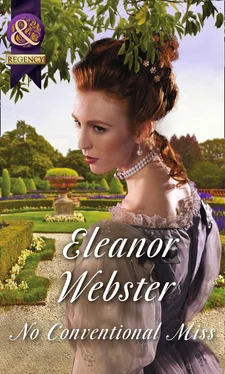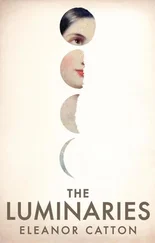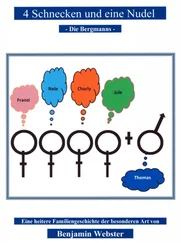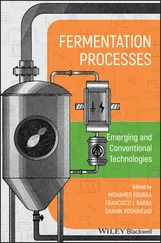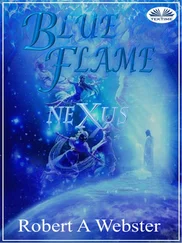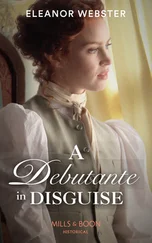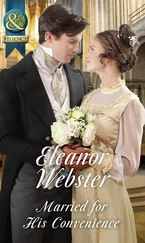‘Do other women look spellbound, as if you’ve said something witty?’
‘Naturally.’
He took her gloved hand and felt it tremble within his palm. The dance started and they broke apart in time to the music.
‘Even when you haven’t said anything either inspiring or witty?’ she asked as they came together again.
‘Especially then.’
‘How tiresome for you.’
‘Why so?’
‘Well, it must make you feel as though you’re not a real person but just a viscount.’
He laughed. ‘That’s the first time I’ve been called “just a viscount”.’
‘I meant no offence.’
‘I know.’ And it was true, he thought, surprised by her perception. Few people saw him as a person, and women never did. He was a good catch, with a title, an estate, and ample income.
‘Now you’re much too serious,’ she said. ‘Aren’t you supposed to look as though I’ve also said something remarkably entertaining?’ She stepped under his raised arm. ‘Or does it not work both ways?’
Author Note
I am drawn to the slightly unusual character—the individual with quirks. I enjoyed Rilla for her character’s strength, her paranormal abilities and her love of invention. As an added bonus, I learned about many unsung female inventors.
Ada Lovelace collaborated with Charles Babbage and developed the first mechanical thinking-calculating machine. Sadly, she didn’t patent her work as it was considered socially inappropriate for women to be filing patents.
Margaret Knight designed and fought to keep the patent for the flat-bottomed paper bag. She won, by the way, despite a certain gentleman who claimed that a woman could not possibly have the mechanical knowledge required for such an invention.
Other inventions created by women include windscreen wipers, disposable nappies, the dishwasher and liquid paper.
For me, Rilla’s character is an acknowledgement of the contributions women have made, and still make— particularly when they step from the realms of what is considered ‘appropriate’.
No Conventional
Miss
Eleanor Webster

www.millsandboon.co.uk
ELEANOR WEBSTERloves high-heels and sun—which is ironic as she lives in northern Canada, the land of snow hills and unflattering footwear. Various crafting experiences, including a nasty glue gun episode, have proved that her creative soul is best expressed through the written word. Eleanor is currently pursuing a doctoral degree in psychology and holds an undergraduate degree in history. She loves to use her writing to explore her fascination with the past.
No Conventional Miss is Eleanor Webster’s enchanting debut for Mills & Boon Historical Romance!
Before you start reading, why not sign up?
Thank you for downloading this Mills & Boon book. If you want to hear about exclusive discounts, special offers and competitions, sign up to our email newsletter today!
SIGN ME UP!
Or simply visit
signup.millsandboon.co.uk
Mills & Boon emails are completely free to receive and you can unsubscribe at any time via the link in any email we send you.
To the little girl who played with Barbie dolls, weaving stories of romance, adventure and intrigue.
To the mother who tirelessly made minuscule frocks and dress-up gowns, so wonderfully fostering all things imaginative.
Contents
Cover
Excerpt
Author Note
Title Page
About the Author
Dedication
Prologue
Chapter One
Chapter Two
Chapter Three
Chapter Four
Chapter Five
Chapter Six
Chapter Seven
Chapter Eight
Chapter Nine
Chapter Ten
Chapter Eleven
Chapter Twelve
Chapter Thirteen
Chapter Fourteen
Chapter Fifteen
Chapter Sixteen
Chapter Seventeen
Chapter Eighteen
Chapter Nineteen
Chapter Twenty
Chapter Twenty-One
Chapter Twenty-Two
Chapter Twenty-Three
Chapter Twenty-Four
Epilogue
Extract
Copyright
Prologue
Gibson Manor —1805
The child had been missing for three days.
Through the nursery windowpanes, Rilla watched the faint flickering of the men’s torches as they searched. Occasionally she heard their hoarse cries.
It was a wet spring. Heavy raindrops fell rhythmically off the shrubbery. A thick, obscuring mist hung low, tangling in the bare branches and turning the countryside a flat, featureless grey.
Rilla shivered and rested her head against the cool windowpane. She thought of Sophie. The little girl was new to the neighbourhood, a visitor and only five. Even at nine, Rilla would hate to be outside in this weather. And Rilla was strong and tall. She climbed trees, building perches in their upper branches and swinging from their limbs.
Oh, why did her head ache? Why did her limbs feel heavy as though weighted with huge sacks of flour?
Even the glow of twilight hurt and she squeezed her lids tight shut, pressing her palms to her eyes to cut out any vestige of light.
And then ‘it’ happened.
For ever after, Rilla said she slept and dreamed. There was, could be, no other explanation.
Except Rilla did not remember lying down. There was no rest, no comfortable drifting into slumber.
Instead, it felt as though she remained standing while everything about her changed and mutated: the whitewashed walls, the books, the rocking horse with its worn paint, the brick hearth, her grandmother’s ugly portrait and equally ugly embroidered sampler—gone.
Cold mist dampened her skin. Goosebumps prickled. Her breath came in harsh gulps. She stared into the fog’s whiteness, trying to make out indistinct forms and shadows.
Yes, she knew the place. It was the gamekeeper’s cottage, burned down years earlier and now a ruin, its blackened beams softened by ivy.
Sophie .
Sophie was here.
The knowledge came suddenly and completely, without doubt or question.
Sophie was trapped within the cellar, under the slate floor of the broken kitchen.
* * *
Rilla blinked. She was lying on the cold nursery floor, staring upwards at the whitewashed ceiling with its singular crack which looked like a lamb’s hind leg. She sat up. Tentatively she touched the cloth of her dress and twisted her fingers through the unruly tresses of her red hair.
Dry.
Her shoes were clean and dry also.
And yet...
In the distance, she heard the shouts of the men’s voices.
She jumped up, suddenly urgent. She must tell them. They did not know yet. They must know. Then they would find Sophie and save her.
Thank goodness.
And everything would change.
Chapter One
Lyngate Estate —1817
‘This sounds like yet another of your ill-advised schemes,’ said Paul Lindsey, Viscount Wyburn, with as much patience as he could muster.
‘Piffle,’ his stepmother retorted, shaking her grey ringlets. ‘It would be a crime to allow such delightful girls to languish in the country.’
‘But hardly incumbent upon you to rectify the situation.’ Paul stood by the mantel. His gaze drifted from the china figurines to the requisite pink, dimpled Cupids depicted across the drawing-room ceiling.
‘Who else will take them in hand? Their dear mother is dead, and Sir George has a predilection for horses and cards. Very sad.’ Lady Wyburn bent with apparent diligence over her needlework.
Turning, Paul sat across from his relative and studied her more closely. He drummed his fingers on the low rosewood table. Lady Wyburn was the only person on God’s earth he gave tuppence for, and he’d not allow some sticky-fingered squire to rob her blind.
Читать дальше
